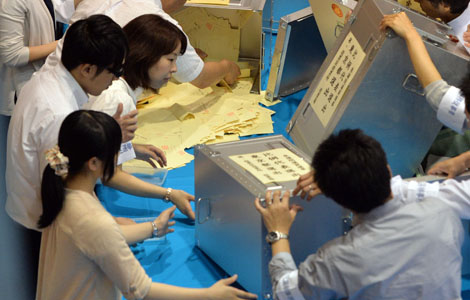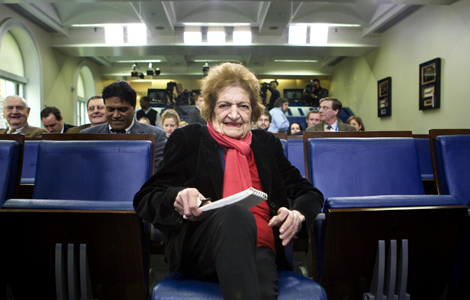China signals 'deep-water' reform
Updated: 2013-07-22 11:30
(Xinhua)
|
||||||||
BEIJING - In freeing up lending rates, China has sent a strong signal that it is feeling its way in the "deep water" of reform, moving toward a more open, market-oriented economy.
On Friday, China's central bank announced the sooner-than-expected removal of controls on bank lending rates, effective on Saturday. It canceled the floor limit for lending interest rates to allow financial institutions to compete for borrowers.
"In general, we believe the macro and micro conditions are ready for further reforms," said a central bank official who spokes to Xinhua on condition of anonymity.
China's gross domestic product (GDP) growth slowed to 7.6 percent in the January-June period, the weakest first-half performance in three years but still above the lower limit that the government will tolerate.
M2, a broad measure of money supply that covers cash in circulation and all deposits, increased 14 percent year on year to 105.45 trillion yuan ($17 trillion) at the end of June.
In response to the government's "de-leveraging" approaches, Chinese lenders were hit by a severe liquidity crunch last month, as indicated by a surge in the Shanghai Interbank Offered Rate overnight rate, a basic gauge of interbank borrowing costs, to an historic high of 13.44 percent on June 20.
Nevertheless, the State Council, China's cabinet, reiterated on July 5 that it would "make steady progress in the market-based reform of interest rates and let the market play a bigger role in the allocation of capital."
Amid a continuous economic slowdown and increasing risks in the financial market, the latest move has reaffirmed the government's absolute determination to secure stable growth and restructure the economy, said Yin Jianfeng, a researcher at the Chinese Academy of Social Sciences, a government think tank.
"Large and medium-sized enterprises with good qualifications will have stronger bargaining power when seeking loans, and in this sense, the move will help stabilize economic growth," said Lian Ping, chief economist with Bank of Communications.
On the other hand, micro and small enterprises, which usually accept interest rates 10 to 30 percent above the guideline rate, will become more attractive to banks. This will ease the credit crunch among small businesses and inject vigor into these job generators, said Lian.
Most Viewed
Editor's Picks

|

|

|

|

|

|
Today's Top News
Woman jailed in Dubai after reporting rape
Guangdong to probe airport bomber's allegations
Police meets GSK representative after scandal
US protests demand 'justice for Trayvon'
6.6-magnitude quake hits NW China
Minister rules out stimulus package
Top Chinese admiral to visit US this year
Victory improves Abe's hand
US Weekly

|

|














